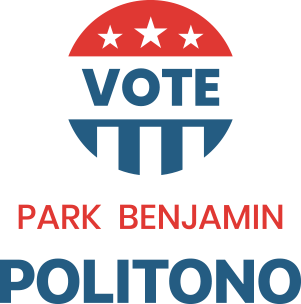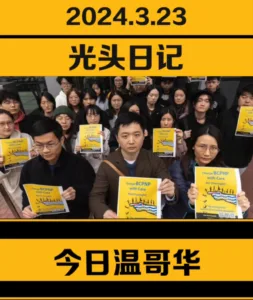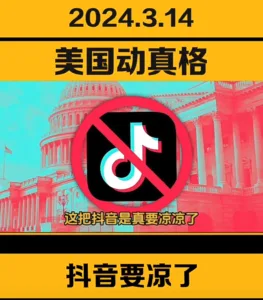奥运刚结束的第一周,8月30日,在北京市朝阳区常营和管庄地区发生群众示威活动,该区居民抗议当局对区内持续多年的大型垃圾处理中心的恶臭不做为,示威活动一度阻断朝阳北路的交通三个小时以上。据网民投诉,常营和管庄周围有一大型垃圾处理厂,该地区经常恶臭弥漫,垃圾焚烧厂焚烧后的二恶英(戴奥辛)等致癌物质高出正常水平40倍以上,周围近百万群众反映了数年当局没有给出任何说法,更有甚者,垃圾场正南方500多米,北京当局正在建设数百万平方米的经济适用房和两限房。
专家研究,二恶英是一种无色无味、毒性严重的难降解物质,号称“世纪之毒”,是斯德哥尔摩公约明令禁止的持久性有机污染物之一。有研究显示,二恶英的毒性是氰化钾的100倍,比砒霜还要毒上千万倍的物质,根据日本东京的统计,80%的戴奥辛是由焚化炉所产生。
据流行病学的调查显示,二恶英在致癌毒性方面,与软组织肿瘤及恶性淋巴肿瘤的发生有关。它是非常稳定的化合物,为脂溶性,极难溶于水。因其具持久性,进入生物体后就积存在脂肪中,因而在食物链中会有生物累积及生物扩大的效应,一旦造成污染,极不容易清除。也可经由母体胎盘到达胎儿,进而使孕妇发生流产或畸胎。
附近居民对于垃圾场建在人口稠密的市区,当局不闻不问老百姓的健康和安危,反而在此规划两限房和经济适用房更是表示不可理解和愤慨!



找到一张网友做的图片,里头标明了垃圾场的位置以及和居民区的关系,不是很全面,还有很多居民区没有标出来
外媒英国卫报报导了本次游行抗议事件
Chinese protesters return to streets after Olympics
奥运后中国抗议者重返街头
英国卫报记者Jonathan Watts北京报道,2008年8月31日
原文网址:http://www.guardian.co.uk/world/2008/aug/31/beijing.pollution.protest
简介
本届奥运期间,中国政府为了保证“绿色奥运”关闭多家化工厂。但是,北京常营地区饱受高安屯垃圾填埋场和焚烧厂的恶臭长达数年之久,即使奥运期间也没有停止过。请看北京常营地区居民为了清新家园所做的努力。
PS:对作者倒数第六段讽刺抗议者的语调有些不爽,毕竟在中国游行需要多大的勇气啊。
In a sign that the Olympics feel good factor has already begun to evaporate, protesters took to the streets of Beijing yesterday in an escalating campaign against the city’s biggest dump site, which they claimed was polluting the air with a foul stench and dangerous dioxins.
奥运会所带来的积极因素已有开始蒸发的迹象,昨天抗议者走上北京街头,强烈抗议北京市最大的垃圾场。他们称该垃圾场臭气熏天,含有危险的二恶英,污染环境。
Wearing surgical masks and carrying umbrellas, the mostly young, middle-class campaigners blocked roads, chanted anti-pollution slogans and refused to allow rubbish trucks to pass as dozens of police filmed them and appealed for calm.
抗议者戴着手术口罩,打着雨伞,大多数都是中产阶层的年轻人。他们挡住了道路,呼喊反对污染的口号,拒绝让垃圾车通过。几十名警察将他们拍摄下来并呼吁他们保持冷静。
Residents of the affluent Changying district of east Beijing have complained for more than three years about the nearby Gaoantun landfill and waste incineration facility.
三年多来,北京东部常营地区的富裕居民已多次投诉附近的高安屯垃圾场和垃圾焚烧设施。








Every day, 3,700 tonnes of household refuse are buried in the 40-hectare landfill. In addition, the plant burns 40 tonnes of medical waste from hospitals, raising fears among locals that the air is being polluted by odourless carcinogenic dioxins. This is denied by the plant’s owners.
这个40公顷垃圾场每天要填埋3700吨生活垃圾。此外,该厂还每天从医院运来40吨医疗垃圾焚烧,当地居民害怕这些无味致癌的二恶英会污染空气。垃圾厂负责人否认了这一点。
Residents have petitioned the authorities and filed a lawsuit in the courts. Dissatisfied with the lack of progress, they are using the internet, text messages and demonstrations to be heard.
居民曾向当局请愿并向法院起诉。由于不满进展,他们正利用网络、手机短信和游行示威的方式表达意见。
Zhen Qianling, a chemist among the crowd, said the stink from the plant on hot days made him feel sick and sent his heart racing. ‘We want to block the traffic so the government will hear our voice. If we just sit back and do nothing, the government will also do nothing.’ Like many, this was the first protest he had joined. The demonstrators were young urban professionals – designers, internet workers and translators. Other protestors were from the ‘New Sky Universe’ and ‘Berlin Symphony’ tower blocks. Property costs about 14,000 yuan (£1,100) a square metre, well above the Beijing average. The residents thought they were buying into one of the city’s most salubrious neighbourhoods, but on hot summer days, when the wind is in the wrong direction, their homes are filled with the stench from the dump.
Zhen Qianling是人群中的一名药剂师,他说垃圾厂大热天散发出的恶臭让他恶心,心跳加快。“我们要阻塞交通让政府听到我们的呼声。如果我们坐视不管,政府也不会有所作为”。和许多人一样,这是他第一次参加抗议。示威者是市区年轻的专业人员——设计师、IT人员和翻译。其他抗议者来自万象新天和柏林爱乐这两个高密度小区。这两个小区的房价已经达到每平方米14,000元(1100英镑),大大超出北京平均水平。这些居民本以为买到了市内最生态环境很好的小区,但每到炎热的夏季,如果风向不对,家里就会充斥着垃圾场的恶臭。
‘If I had known, I would never have bought a home here,’ says Helen Liu, a translator who moved into her 500,000 yuan house in April.
“早知如此,我才不在这里买房。”Helen Liu说。她于今年四月搬进这套价值50万元的房子。
In the run-up to the Olympics, police detained several prominent dissidents and put others under close surveillance. Three ‘protest parks’ were established, but of the 77 people who applied to use them, none have yet succeeded. According to human rights groups, several applicants were sent back to their home provinces or put in ‘re-education through labour’ camps.Foreigners who staged Free Tibet demonstrations have been deported.
在奥运的准备阶段,警方扣留了几名突出的异议者,并严密监督其余多人。三个“抗议公园”建成了,但是77名申请使用者无一成功。据人权组织称,几名申请者被遣返回乡或是被送进劳改所。举行自由西藏示威的外国人则受到驱逐。
The residents of Chanying said they did not fear a police backlash because China was becoming more open and the authorities’ concerns about losing face during the Games have diminished.
常营地区的居民说他们不怕警方报复,因为中国越来越开放,而且当局也不像奥运期间那么担心丢面子了。
During the demonstration and after police warned the protesters they were breaking the law, they became almost comically well-mannered. They walked slowly back and forth for more than an hour across a pedestrian crossing – but only on the green man – chanting, ‘We don’t want stinking air.’
在示威时以及警方警告抗议者违法后,他们变得近乎可笑的规规矩矩了。他们在人行横道上来来回回一个多小时,但只在绿灯亮时大呼“我们不要恶臭空气。”
Managers at the site said emissions met environment bureau standards, but officials acknowledged the smell was a problem. ‘We pay a lot of attention to the residents’ concerns,’ said Guo Tuanhui. ‘On hot days, the buried rubbish gives off a bad odour. But we are doing what we can.’
当场的管理人员说排放达到环保局标准,但官员们也承认臭气是个大问题。“我们也很关心居民的感受。”
The rally appeared to be part of a growing trend in China, as well-educated, middle-class citizens complain about environmental hazards.
由于受过良好教育的中产阶层公民对环境公害的申诉,示威游行在中国风潮日盛。
In May 2007, thousands took to the streets of Xiamen in Fujian province, forcing the local government to halt plans for a chemical factory.
2007年5月,数千人走上福建厦门的街头,迫使当地政府停止建造化工厂的计划。
Last year, the head of China’s environmental agency, Zhou Shengxian, blamed the rising number of riots, demonstrations and petitions across the country on public anger at pollution.
去年,中国环境保护部部长周生贤谴责全国各地因污染问题引起公愤,酿成不断增加的骚乱、示威和请愿活动。
The public have good reason to be concerned. According to the World Bank, up to 400,000 people in China die each year from outdoor air pollution, 30,000 from indoor air pollution, and 60,000 from water pollution.
公众的忧心忡忡不无道理。根据世界银行的数据,中国每年死于室外空气污染者达40万人,其中3万人死于室内空气污染,6万人死于水污染。








